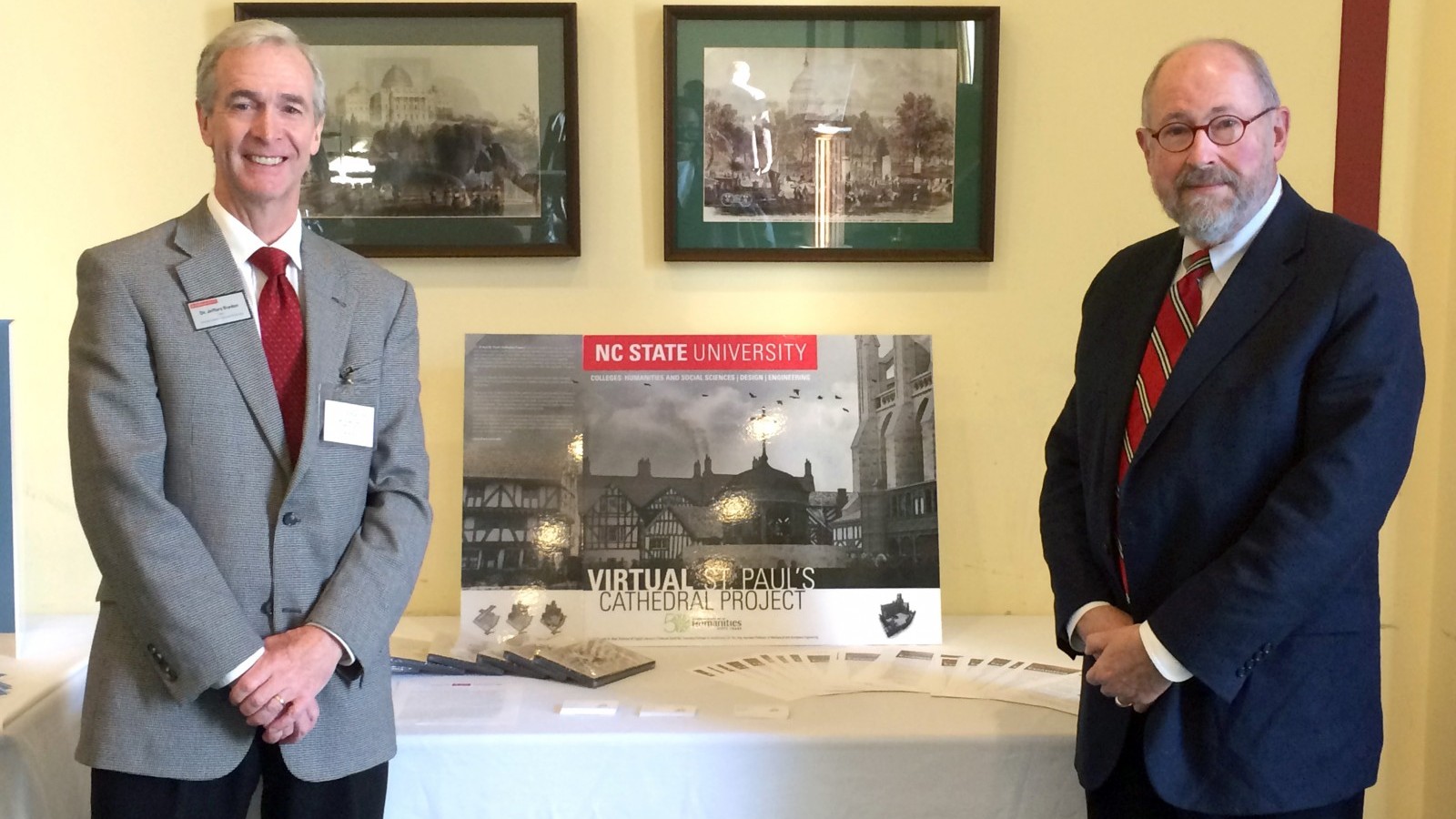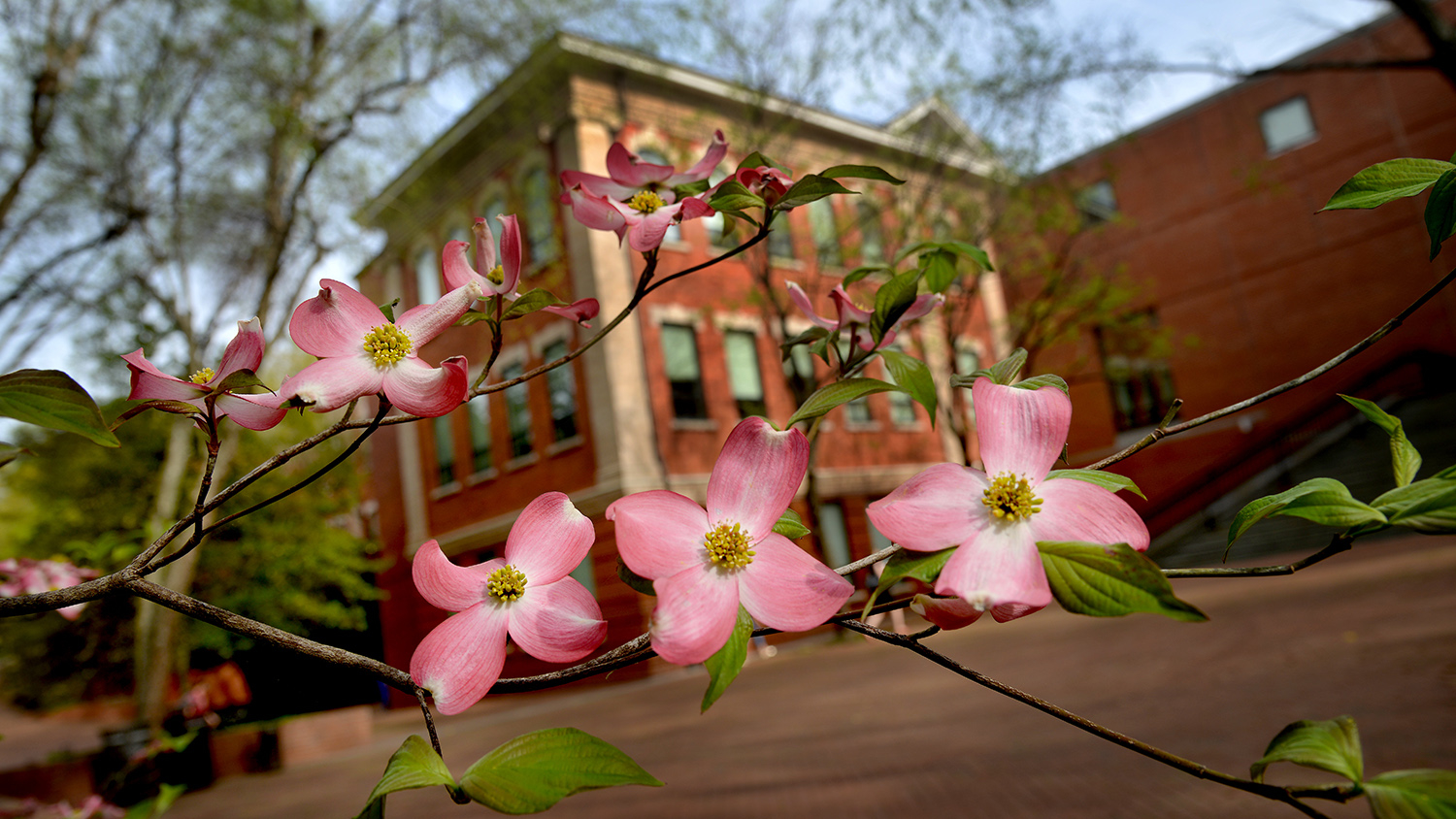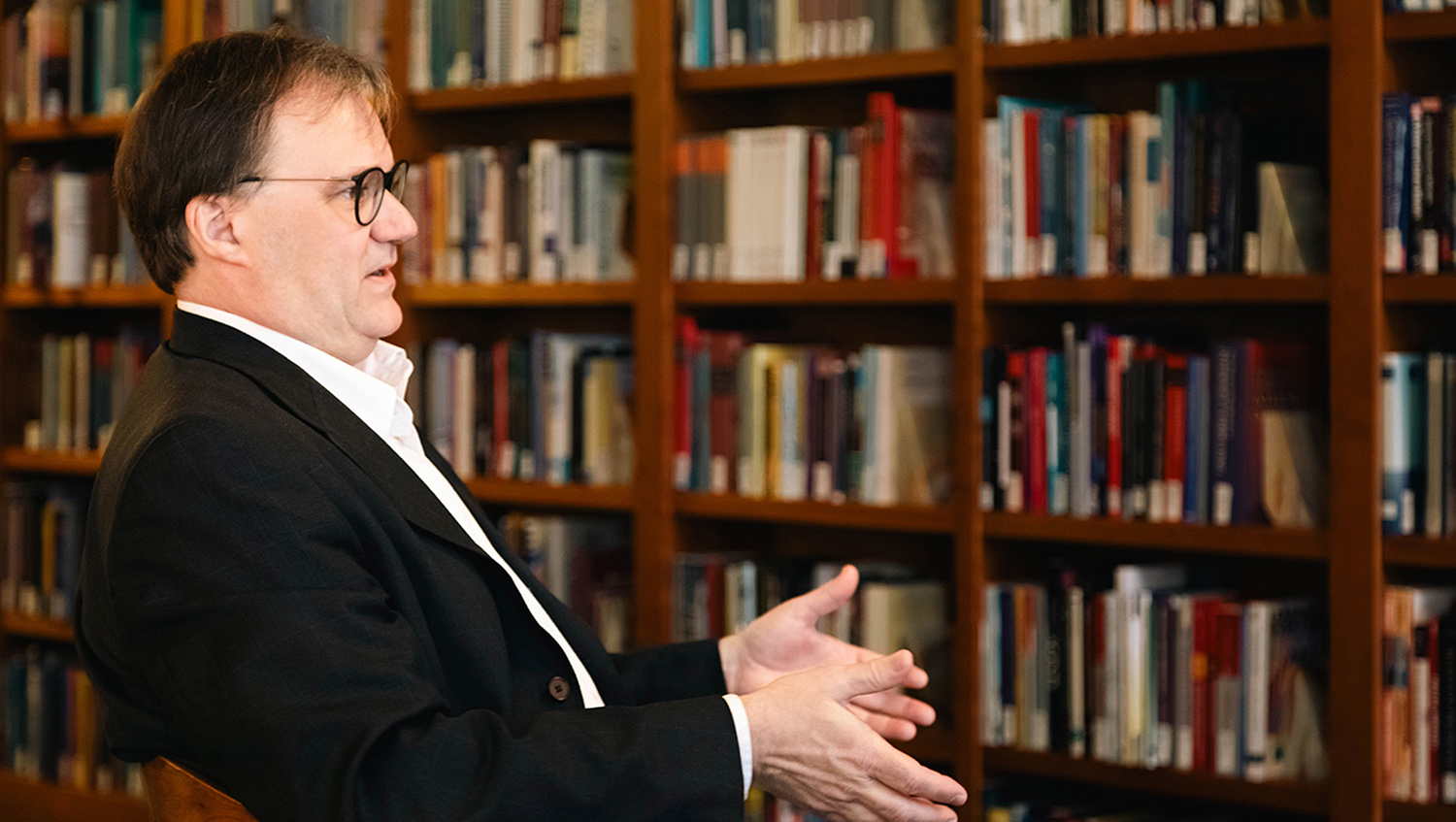Humanities research shares national stage at Congressional reception

NC State’s purposeful work in the humanities was highlighted on a national stage Tuesday during a Congressional reception in Washington.
Congressman David Price invited members of NC State’s College of Humanities and Social Sciences to discuss their latest research in honor of the 50th anniversary of the National Endowment for the Humanities. The Congressional Humanities Caucus, which Price co-chairs, held the event as part of the year-long celebration for the NEH’s birthday.
NC State was part of a select group of universities invited to the reception, which drew a crowd of more than 200 guests representing Congress, Phi Beta Kappa Society, the Council of Graduate Schools and the American Council of Learned Societies, among other groups. During his remarks to the crowd, Congressman Price specifically recognized NC State’s work in the humanities, noting a recent trip he made to campus where he learned about several ongoing projects.
Jeff Braden, dean of NC State’s College of Humanities and Social Sciences, shared with elected officials and donors at the reception how NEH funding has benefited many projects at NC State. He was joined by researcher John Wall, a professor of English, who also explained to guests how his work has thrived with NEH support.
Wall and David Hill, a professor of architecture, led a team of researchers who created a 3-D visual model of St. Paul’s Cathedral’s 17th century courtyard in London. The model, funded by a $49,998 NEH Digital Humanities start-up grant in 2011, helped the researchers recreate and study John Donne’s Gunpowder Day sermon on Nov. 5, 1622.
During a visit to NC State earlier this year, NEH Chairman William (Bro) Adams announced a new $324,135 grant for the Virtual St. Paul’s Cathedral project. The funding, which represents the largest NEH grant in NC State history, will extend the 3-D model to the interior of St. Paul’s Cathedral and also help create openly available modeling software that other scholars can use.
Other NC State projects highlighted at Tuesday’s NEH reception included “Cedars in the Pines,” a film documenting the history of the Lebanese community in North Carolina. History professor Akram Khater led the production of the documentary in 2012. The project has since expanded to include a museum exhibit and educational components and has ongoing support from the Moise A. Khayrallah Center for Lebanese Diaspora Studies.
The Petra North Ridge Project, an archaeological excavation led by history professor Tom Parker, was also featured at the reception. Parker’s team received NEH funding to excavate Nabataean tombs that date back to the 1st century A.D. The research aims to reveal more about the life and culture of the historic Jordanian city’s ancient inhabitants.
In the past five years, the NEH has awarded more than $1 million for projects led by NC State’s College of Humanities and Social Sciences. Others include:
- A modern French theater seminar for teachers in Avignon, France, led by Foreign Languages and Literatures professor Mary Ann Frese: $114,518 (2010) and $138,849 (2013).
- A fellowship for Foreign Languages and Literatures professor Elvira Vilches at Brown University: $42,000, 2013.
- A fellowship for English professor John Wall at the National Humanities Center: $50,000, 2013.
The year-long celebration of the 50th anniversary of the NEH started on Sept. 29, the date President Lyndon B. Johnson signed the National Foundation on the Arts and the Humanities Act 50 years ago. Since then, the NEH has awarded more than 63,000 grants totaling $5.3 billion, while also leveraging about $2.5 billion in matching donations, to support humanities scholarship, outreach, and engagement throughout the United States.
For more information, go to 50.neh.gov.


